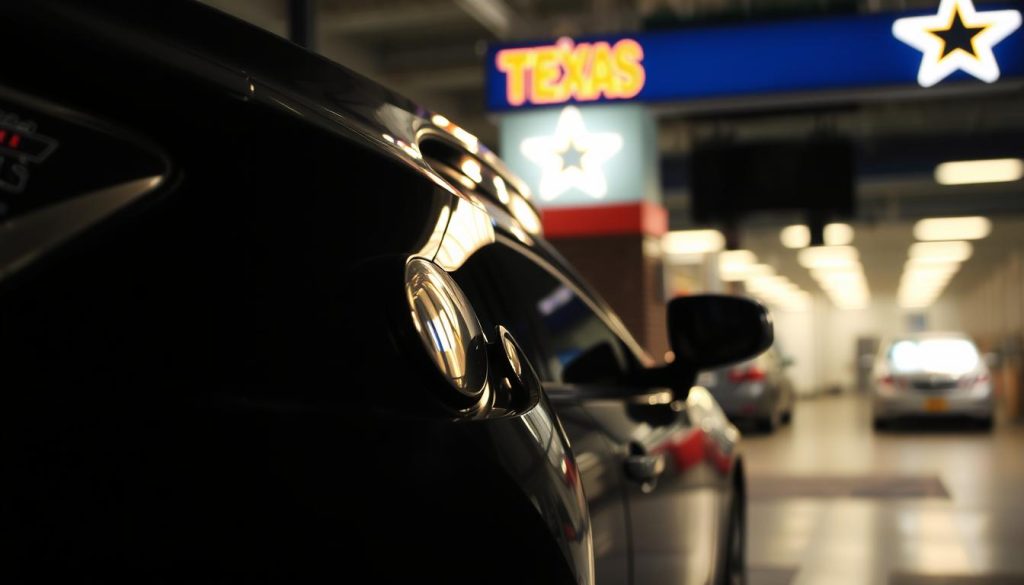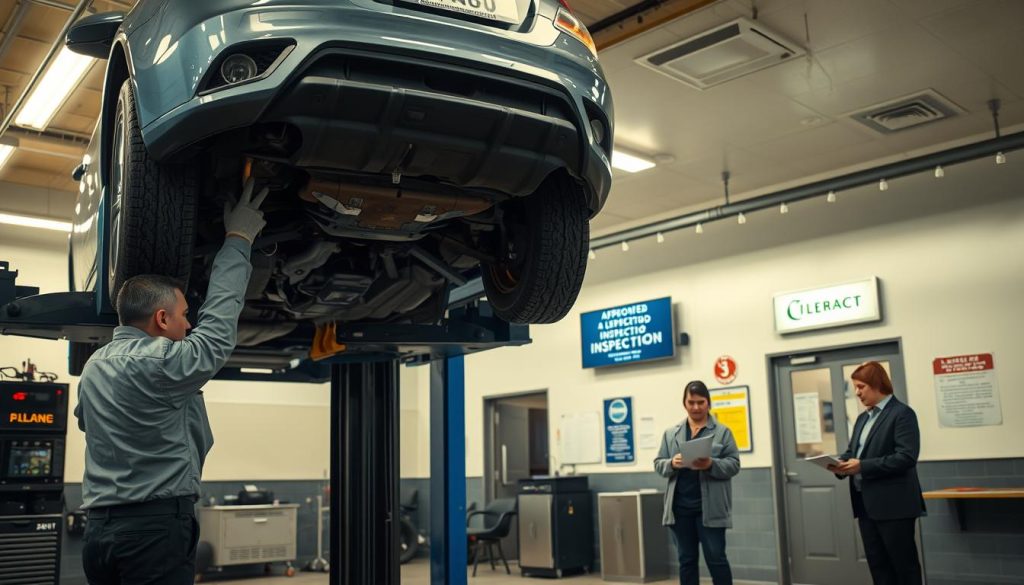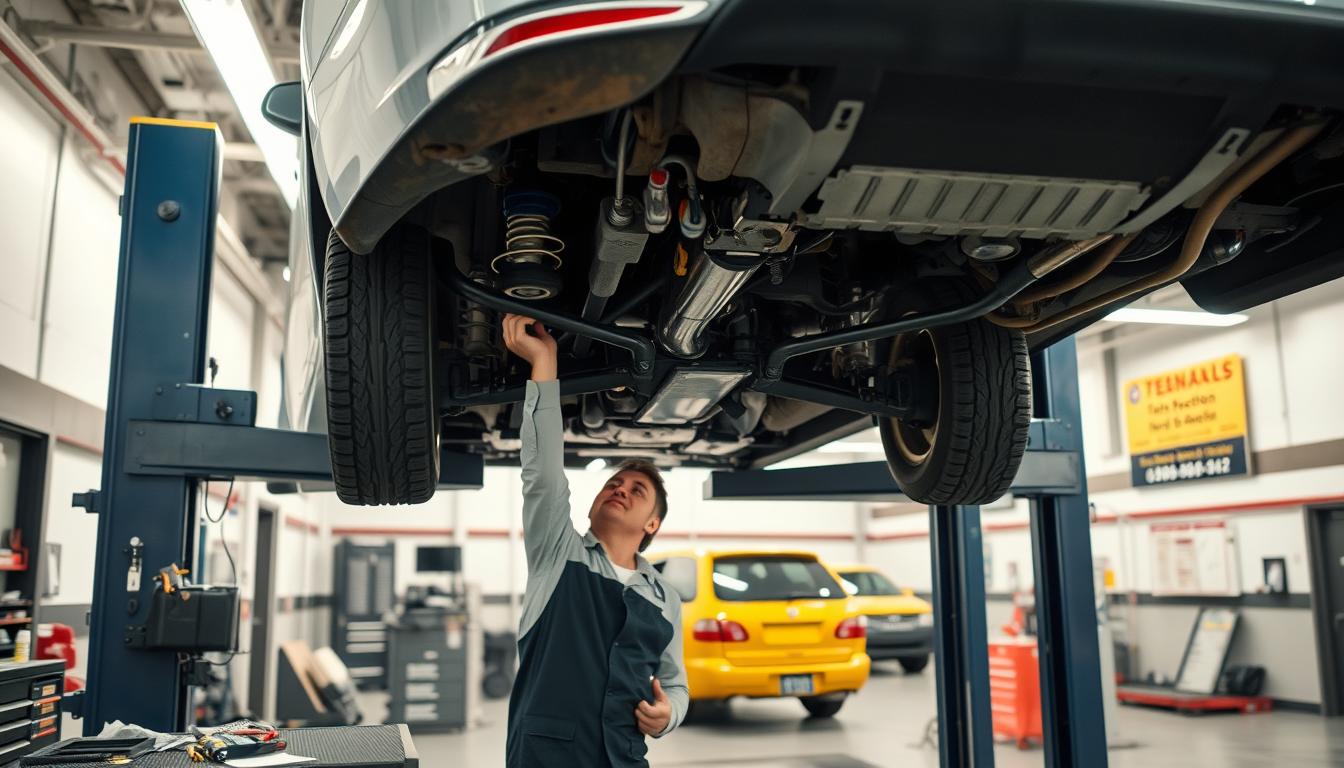Preparing for your vehicle’s annual checkup doesn’t have to be stressful. Starting January 1, 2025, most drivers in Texas will no longer need annual safety evaluations due to recent legislative changes. However, commercial vehicles must still complete these inspections, and all drivers will continue paying the $7.50 “Inspection Program Replacement Fee” during registration.
Until December 31, 2024, standard inspections remain in effect. Technicians will examine critical components like brakes, tires, lights, and steering systems. These checks ensure every car meets safety standards and reduces risks for everyone on the road.
At Heaven Automotive, we simplify this process. Our team helps drivers understand what inspectors look for and how to address issues beforehand. Whether you’re a new owner or maintaining an older model, we’ll guide you through documentation needs and timelines to avoid delays or extra costs.
Key Takeaways
- Most Texas drivers no longer need annual safety inspections after January 2025.
- Commercial vehicles must still pass yearly checks and pay fees.
- All drivers pay a $7.50 fee during registration to fund state programs.
- Inspections through 2024 focus on brakes, tires, lights, and steering.
- Proper preparation reduces re-inspection costs and delays.
- Heaven Automotive offers pre-inspection evaluations to ensure compliance.
Understanding Recent Changes in Texas Vehicle Inspections
New laws are reshaping how Texans maintain their vehicles starting in 2025. Legislation passed in 2023 eliminates mandatory safety inspections for personal cars, shifting responsibility to owners. While this reduces annual paperwork, it raises questions about long-term public safety and maintenance habits.

Legislative Updates Simplified
House Bill 3297 phases out non-commercial vehicle checks after January 1, 2025. Drivers will still pay the $7.50 “Inspection Program Replacement Fee” during registration – now funding road safety initiatives instead of inspections. Key changes include:
- No more yearly brake or tire checks for personal vehicles
- Commercial trucks and fleet vehicles still require annual evaluations
- 17 counties maintaining emissions testing through 2026
What This Means for Drivers
While the changes simplify registration, they put vehicle upkeep entirely in owners’ hands. Local shops like Charissa Barnes’ inspection stations have already adapted services due to reduced demand. At Heaven Automotive, we recommend:
- Scheduling voluntary safety checks every 6-12 months
- Monitoring tire tread and light functionality personally
- Preparing for Bexar County’s 2026 emissions requirements
We help drivers bridge the gap between legal requirements and practical safety needs. Our team stays updated on all law modifications so you can focus on the road ahead.
Overview of the State Inspection San Antonio Process
Recent shifts in vehicle compliance requirements are reshaping how drivers maintain their cars in Bexar County. Many local businesses specializing in evaluations have reduced operations or closed entirely due to changing demand. This creates new challenges for those seeking reliable maintenance services.

What This Means for Local Drivers
With fewer service providers available, finding convenient options for critical checks becomes harder. One longtime operator recently consolidated seven locations down to two, reflecting broader industry trends. While annual evaluations are no longer mandatory for most drivers, voluntary safety checks remain a wise choice to avoid potential fines up to $200.
At our facility, we continue offering comprehensive evaluations for those prioritizing roadworthiness. Our $30 optional inspection covers essential components like brakes and lighting systems. We also prepare drivers for upcoming emissions testing requirements through clear guidance and timely reminders.
The $7.50 registration fee still applies to all vehicles, now supporting roadway safety initiatives instead of mandatory checks. Our team helps clients understand how these changes affect their maintenance routines while emphasizing proactive care. Regular evaluations protect both your budget and your passengers – especially as police continue enforcing basic safety standards.
We’re committed to filling the service gap created by these industry changes. Whether you need immediate repairs or future-proof planning, our technicians provide solutions tailored to Bexar County’s evolving requirements.
Key Components of Safety and Emissions Inspections
Understanding your vehicle’s evaluation requirements helps maintain roadworthiness and compliance. At Heaven Automotive, our certified technicians specialize in both current safety standards and upcoming emissions-focused evaluations. Let’s explore what each process entails for drivers.
Current Safety Evaluation Essentials
Through 2024, we check 12 critical systems during every visit. Our team examines brake responsiveness, tire tread depth, and light functionality. We verify mirrors provide clear visibility and seat belts lock securely during sudden stops.
Steering alignment and windshield integrity remain priorities to prevent accidents. Horns must produce audible warnings, while wipers maintain clear rain removal. These checks protect both drivers and surrounding vehicles.
Future Emissions Testing Focus
Starting January 2025, gasoline-powered cars aged 2-24 years in 17 counties will need different checks. Our process shifts to analyzing exhaust systems and fuel cap integrity. We measure harmful emissions levels using advanced diagnostic tools.
Key components include catalytic converters and oxygen sensors. Proper maintenance prevents costly repairs and keeps air quality standards intact. While safety checks become optional, emissions compliance remains legally mandatory for qualifying vehicles.
We help owners navigate both evaluation types efficiently. Whether updating older models or preparing newer cars for regulations, our technicians explain findings in simple terms. Visit our inspection station for personalized guidance tailored to your vehicle’s needs.
Navigating Inspection Fees and Vehicle Registration
Understanding fee structures helps drivers budget effectively while staying compliant. Recent updates blend traditional costs with new requirements, creating a mix of immediate and long-term expenses. We simplify these changes through clear explanations and upfront pricing.
Breakdown of Inspection and Emissions Fees
Current evaluations range from $0.25 for mopeds to $40 for commercial vehicles. Most cars pay $7 for standard checks through 2024. Emissions testing costs differ regionally:
- El Paso: $18.50
- Dallas-Fort Worth: $25.50
- Bexar County: $18.50 starting 2026
Starting January 2025, owners will pay two separate fees during registration – a $2.50 state charge and station-specific testing costs. Our team explains these layered expenses during every visit.
Registration Process and New Fee Structures
The familiar $7.50 charge becomes part of your annual registration payment. This “Inspection Program Replacement Fee” funds road safety programs instead of evaluations. We help clients:
- Track payment deadlines
- Prepare required documents
- Address issues before official checks
At Heaven Automotive, transparent pricing means no hidden costs. Our $7 safety checks and emissions evaluations meet all legal standards while protecting your investment. Let us guide you through these updates – your wallet and your car will thank you.
Conclusion
Keeping your car road-ready just got simpler – but requires new awareness. The 22-month gap before mandatory emissions checks begin creates confusion for many drivers. Regular maintenance becomes your first line of defense for public safety and compliance.
At Heaven Automotive, we bridge this transition period seamlessly. Our team helps you navigate evolving vehicle registration rules while maintaining critical systems. Whether preparing for future emissions evaluations or addressing urgent repairs, we keep your car meeting all legal standards.
Remember – the $7.50 inspection fee remains part of annual registration, now supporting broader roadway initiatives. Proactive care prevents costly surprises and keeps your family protected.
Trust our certified technicians to simplify every step. From explaining new laws to optimizing older models, we ensure your vehicle stays reliable for years ahead. Visit us today – your partner in safe, compliant driving.

